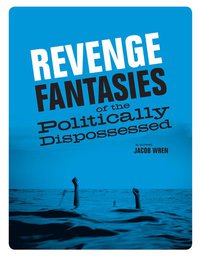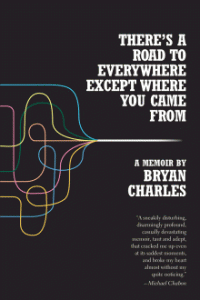 Jacob Wren’s latest book, Revenge Fantasies of the Politically Dispossessed, is pretty awesome and you should know about it. It came out last year from Pedlar Press and is a really fun read. He is also the author of Families Are Formed Through Copulation, a book that is supposed to convince you not to have children. I sent Jacob a 10 sentences assignment and he obliged. Remember 10 sentences? I don’t know, maybe you don’t since it has been a while. (After the jump there is a short interview with Jacob, also.) Enjoy.
Jacob Wren’s latest book, Revenge Fantasies of the Politically Dispossessed, is pretty awesome and you should know about it. It came out last year from Pedlar Press and is a really fun read. He is also the author of Families Are Formed Through Copulation, a book that is supposed to convince you not to have children. I sent Jacob a 10 sentences assignment and he obliged. Remember 10 sentences? I don’t know, maybe you don’t since it has been a while. (After the jump there is a short interview with Jacob, also.) Enjoy.
1. A sentence that involves poison, an emdash and at least five prepositional phrases.
About to take poison, several pretentious thoughts lash through my mind: that life is a betrayal against which there is no remedy, like this cyanide I ordered on line, looking out the window then as I continue to do now, where little can be seen apart from a bird, a car, a dog – the dog is asleep on his bed (but of course the dog is not asleep on his bed, this is simply one of the examples I found when I googled ‘prepositional phrases’) and, realizing I am unsure whether or not I have reached five, I take the poison, still watching the bird and the car upon which no further grammatical games will be played.
2. A one-sentence answer to a question the speaker would rather not talk about but is tired and answers anyway.
No, I didn’t masturbate yesterday and am not masturbating right now as I type this.
3. A one-line ode to the last inanimate object that you touched that is not your computer.
I read too many books, they are the only objects that give me genuine pleasure, but it is a pleasure tinged with melancholy, the melancholy of being more than a little sick with life.
4.A sentence that someone might call ‘deranged’ which includes the word ‘omelet’ and ‘hallucination.’
Fucking an omelet is, technically, not a criminal act, I thought as I continued to pound away, also wondering if I should have let it cool first, howling in pain but, like so many things in life, unable to stop, just fucking and fucking and fucking, the pain surging through every molecule of my body to the point where I realized I might, at any moment, pass out, and began to wonder if me, the omelet, everything that surrounded us, was merely a hallucination. READ MORE >


 That I hate February so much is one of the reasons I love Shane Jones’s Light Boxes. To mark the first of this horrid month, here are two questions I posed to Shane.
That I hate February so much is one of the reasons I love Shane Jones’s Light Boxes. To mark the first of this horrid month, here are two questions I posed to Shane.





